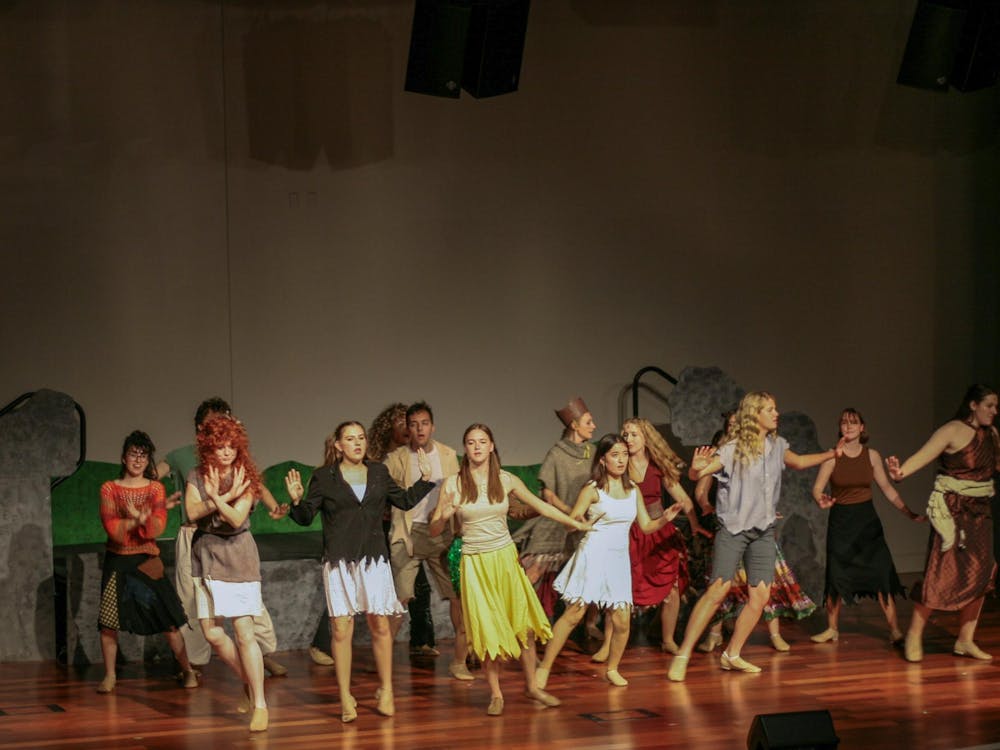Throughout history, a frequent trope in entertainment has been the romantic relationship between a teacher and a student. Authors and directors often emphasize the scandal of it all, but the presence of these teacher and student storylines can make these relationships seem normal — they’re not.
With the release of “Miller’s Girl,” a film starring Jenna Ortega and Martin Freeman, the conversation surrounding these relationships being featured within entertainment is once again prominent.
In the film, writer Cairo Sweet (Ortega) pursues a romantic relationship with her professor, Jonathan Miller (Freeman). Jonathan gives Cairo special treatment throughout the film, leading her to think that their relationship is something more than it is. But when she turns in an inappropriate writing assignment, Miller rejects her advances, leading her to attempt to ruin his life.
Ortega’s dynamic portrayal of the young writer more than outshines Freeman’s lackluster performance. But aside from Ortega, there really isn’t anything interesting about this film. It’s nothing more than an uncomfortable and, frankly, boring watch.
But “Miller’s Girl” is far from the first piece of entertainment with a focus on this teacher-student trope. Unfortunately, it is most definitely not the last.
The hit show “Pretty Little Liars” features a relationship between high school English teacher Ezra Fitz (Ian Harding) and student Aria Montgomery (Lucy Hale).
Not only are they romantically involved while Montgomery is in high school, but the characters actually end up together and get married. In the spin-off, “Pretty Little Liars: Original Sin,” there’s even a reference to the characters and their relationship, with them adopting the child of Imogen Adams (Bailee Madison).
The show glorifies the relationship, and the fanbase does the same.
Fitz and Montgomery being “endgame,” or ending up together in the end, contributes greatly to the normalization of these relationships in a harmful way. Despite the narrative portrayed within “Pretty Little Liars,” this isn’t normal.
In the first season of “Riverdale,” the popular series inspired by the classic Archie Comics, Archie Andrews (KJ Apa) forms a relationship with his music teacher, Geraldine Grundy (Sarah Habel).
Contrary to “Pretty Little Liars,” this relationship is actually frowned upon within the show, and Grundy faces legitimate consequences.
While I normally don’t agree with “Riverdale” or how the show handles things, I have to give credit where it’s due, at least in this specific situation. Grundy rightfully got fired, and though a bit excessive, got killed as a result of her actions.
Enjoy what you're reading?
Signup for our newsletter
In “Friends,” Ross Geller (David Schwimmer) is a professor and forms a romantic relationship with his student, Elizabeth Stevens (Alexandra Holden). Stevens is the one who initiates the relationship, and Geller is shocked to later find out that not only is the relationship frowned upon — it’s also not allowed.
The two later break up due to a discomfort with the age difference and power imbalance, but the relationship goes on far too long.
This trope is incredibly common within entertainment, and it’s almost never handled well, though there are a few exceptions. The characters rarely face consequences — at least, not legitimate, long-lasting ones – which is not only unrealistic, but also promotes the idea that these relationships are normal.
These relationships are illegal and frowned upon for a reason, and the glorification of them within entertainment isn’t beneficial or good for anyone.




